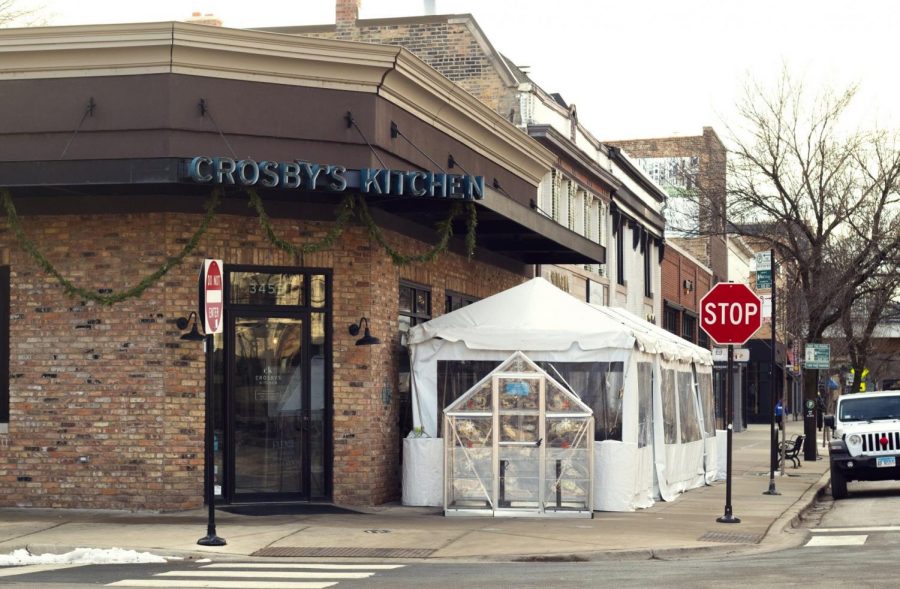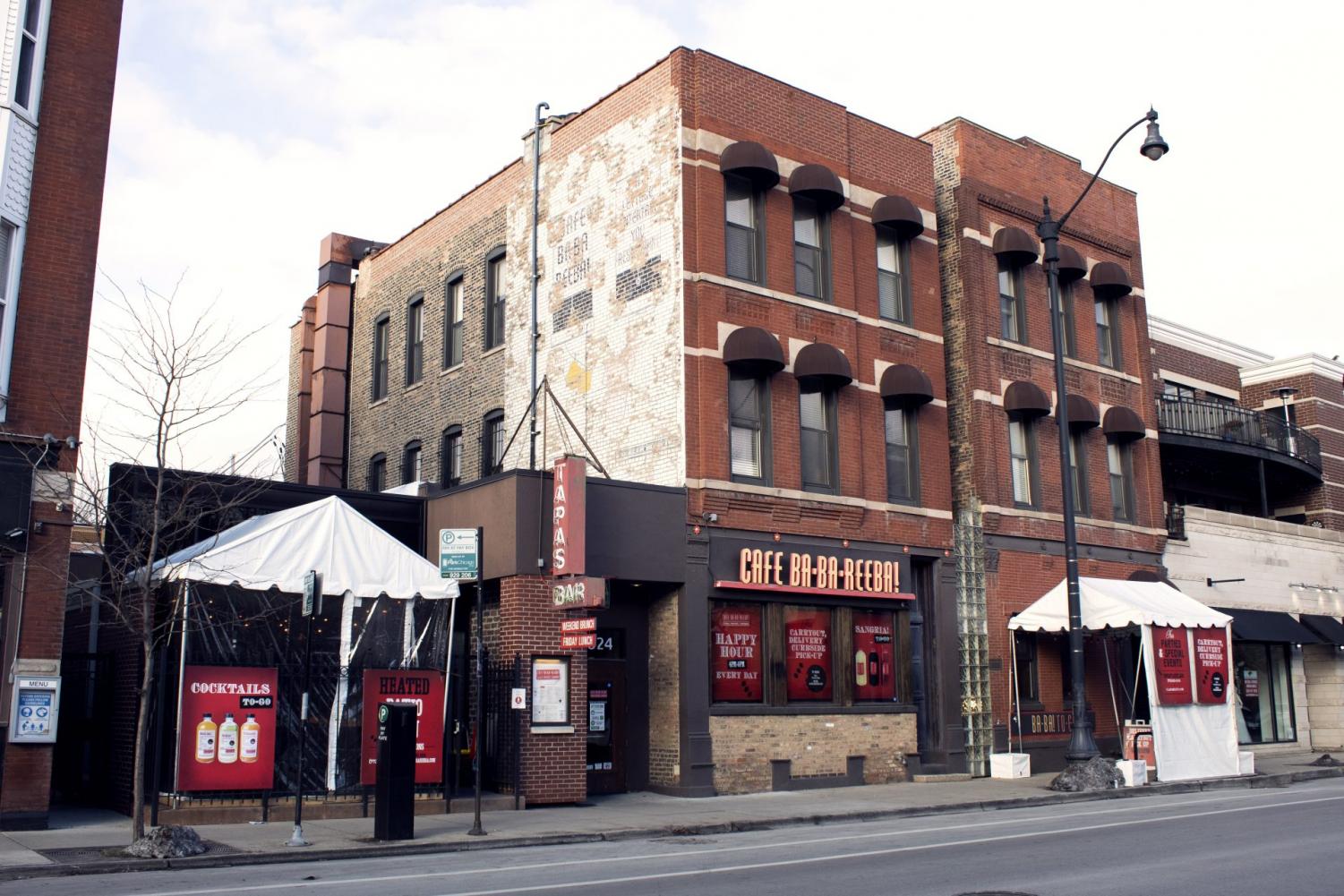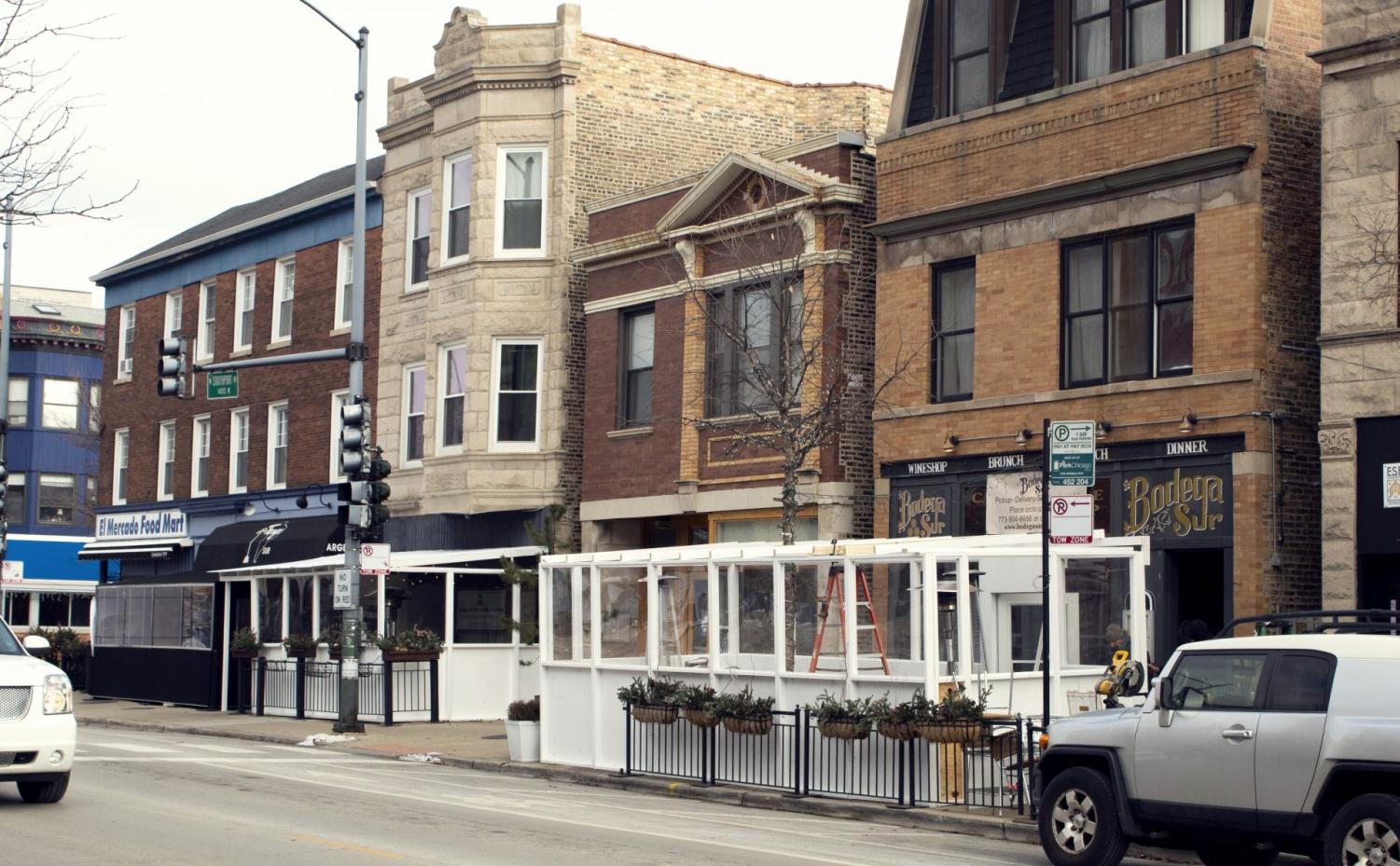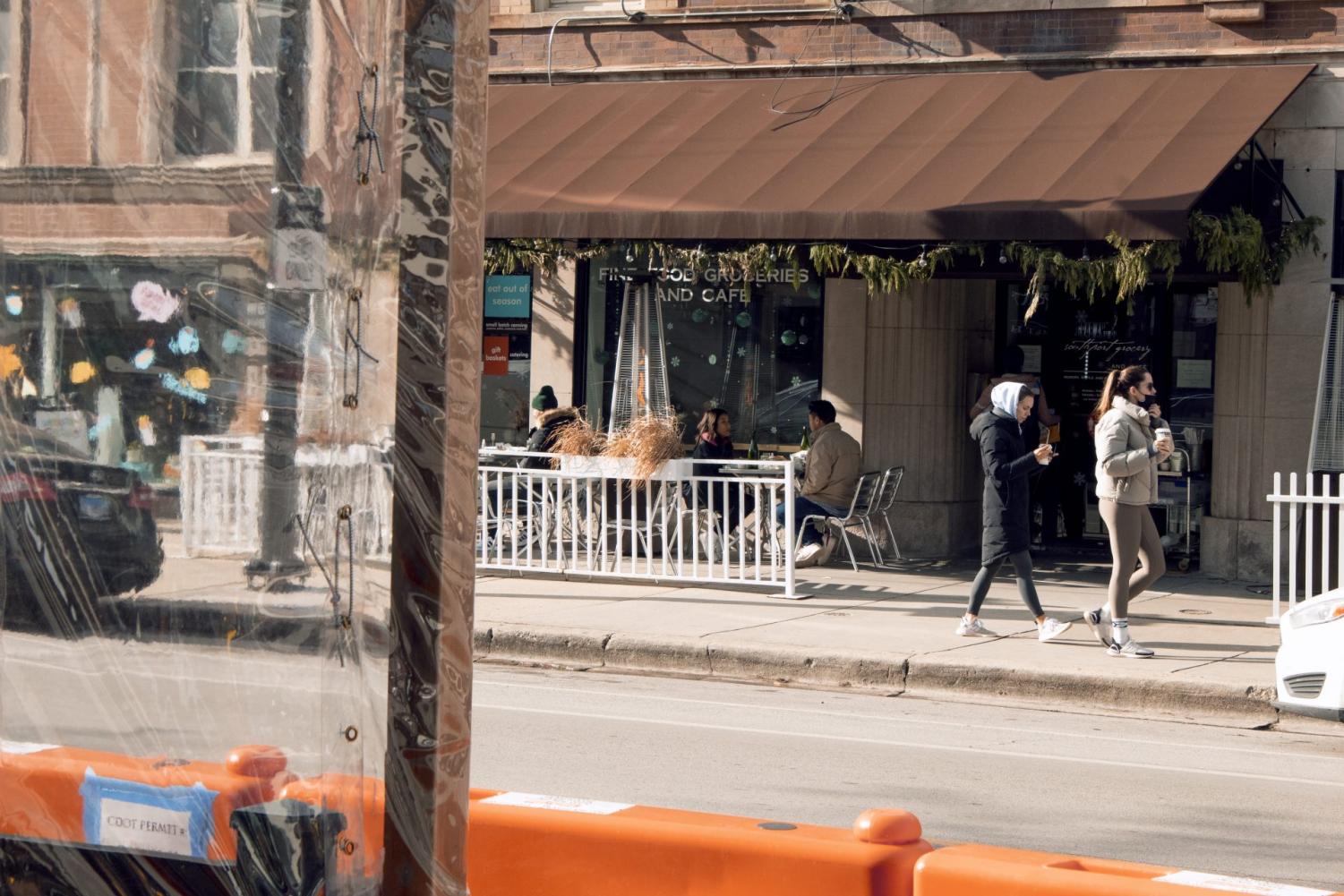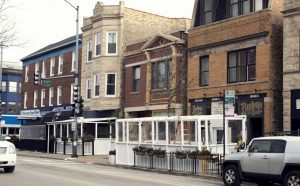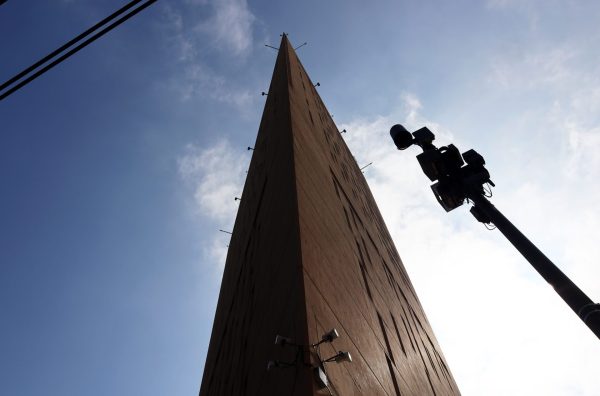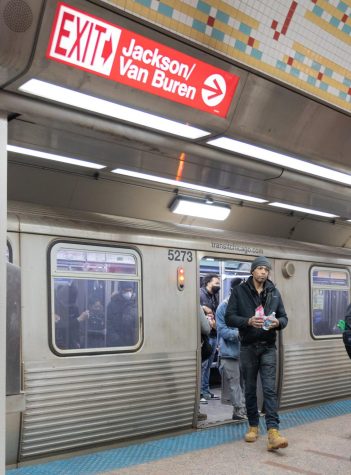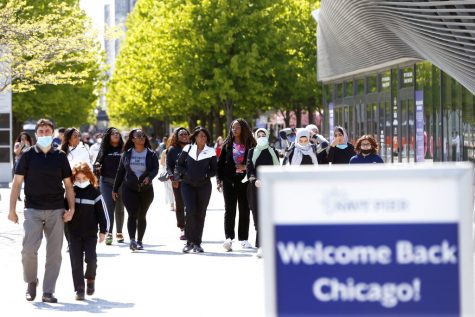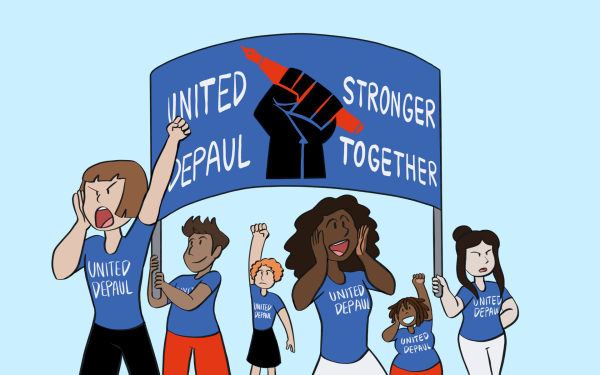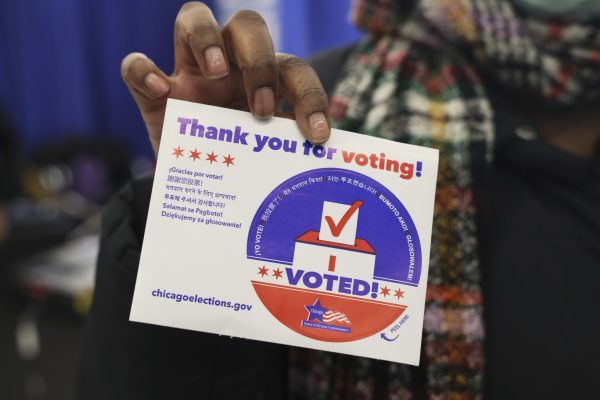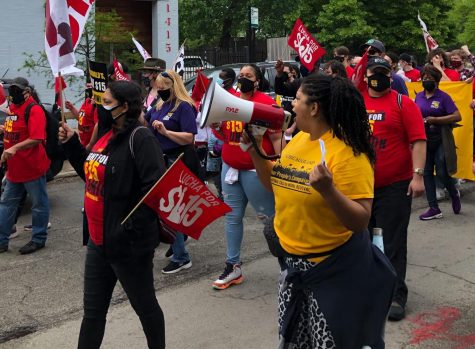High Roads Kitchens to bring wage increases, free meals to select Chicago restaurants
Crosby’s Kitchen in Chicago’s Lakeview neighborhood with added outdoor winter seating.
The High Roads Kitchens Program is coming to Chicago with goals to obtain higher wages for restaurant workers, bring meals to those in need and help stabilize restaurants from the Covid-19 pandemic.
The program is a collaboration between RAISE High Road Restaurants, One Fair Wage and the City of Chicago. The program will give restaurants grants to help provide relief centered around three goals — free community meals, job restoration and restaurant stability.
Grants ranging from $5,000 to $35,000 will be available to restaurants, pending they commit to serve a minimum of 500 free community meals provide a full minimum wage for tipped workers within five years and complete the RAISE High Road Restaurant Race and Gender Equity Toolkit and Training within nine months of qualifying for the grant.
Mikey Knab, national strategy director at High Roads Restaurants, said that participating restaurants meet the free meal requirement in a variety of ways, including partnering with local organizations and offering meals on a scaled payment model.
“Offering meals on a scaled payment model that allows folks to choose $0 as one of the price options,” Knab said. “This model also allows folks who can afford to help to pay double the normal price in order to support adding extra meals to the commitment made by participating restaurants.”
Knab said the program has goals to implement systemic change in Chicago with help from an anonymous donor.
“In Chicago, our very generous donor put in $1 million to help struggling restaurants in this very challenging time,” Knab said. “All cities and regions have been chosen based on how close we believe we are to helping make a systemic change to improve working conditions for hospitality professionals and independent restaurants that commit to investing in their communities.”
Some customers are worried that the raise in wages may result in an increased cost for dining at local restaurants, potentially hurting the businesses long-term.
Knab said that is not always the case, as proven by other states.
“There are seven states that have eliminated the subminimum wage for tipped employees — California, Oregon, Washington, Nevada, Minnesota, Montana and Alaska,” Knab said. “Pre-pandemic, those states had more restaurant growth in terms of numbers of restaurants, numbers of jobs, wages, profits and tip percentages.”
According to One Fair Wage, restaurant employment grew by 24.6 percent in cities without a subminimum wage, compared to a 16.1 percent growth in Chicago.
“There are still very many affordable options for eating out in those states, and many lower on average than in Chicago,” Knab continued.
DePaul local businesses, such as Simply It, Holy Taco and Devil Dawgs on Sheffield, are permanently closing doors due to the pandemic.
“This is a very challenging time for most small businesses, particularly in the restaurant and hospitality industry, and their often tip-reliant workers, such as servers and bartenders,” Matthew Ragas, associate professor of public relations and advertising at DePaul University, said in an email. “Independent bar and restaurant operators and their employees and vendors badly need additional financial assistance, in terms of grants, low interest loans and related programs, to help them get to the other side of this pandemic.”
Not every restaurant will be taking part in the program, as it is on an application basis. The first cohort of 20 restaurants is currently being finalized, but the application will remain open.
Alongside this program, Chicago minimum wage workers in all industries are expecting to see a pay increase in July 2021.
According to a City of Chicago press release, the minimum wage will go up to $15 per hour — $14.50 per hour at businesses with 20 or fewer employees or $9 per hour for tipped positions with the requirement to make up any difference not met by tips.
“It is more important than ever to ensure that workers have the protections and financial stability that they deserve,” the City of Chicago said in a press release.


